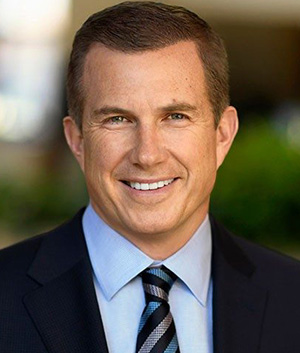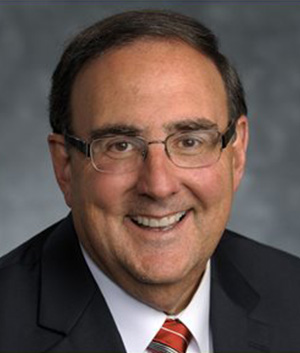
We are Minnesota business people.
We believe early learning opportunity gaps are a primary cause of achievement gaps.
We believe Minnesota achievement gaps destroy societal equity and our economy.
We believe every child deserves an equal opportunity to succeed.
We believe in the transformative power of early learning.
We believe early learning investments empower the workforce of today and tomorrow.
We believe an empowered workforce will fuel our economy, and that a strong economy benefits us all.
We believe children born into the most difficult circumstances must be our first priority.
We believe in proven, research-based early learning approaches.
We believe this is a problem we must fix now, not later.
We believe in action, not just words.
We are Minnesota Business for Early Learning.

Ken Powell Former CEO General Mills

Art Rolnick Former Economist Fed. Reserve Bank of Mpls

Charlie Weaver CEO MN Business Partnership

Rob Johnson Former President Cargill Foundation

Geoff Martha Chairman and CEO Medtronic

Andrea Walsh President and CEO Health Partners

Mike Fiterman Chairman Liberty Diversified Intl

Archie Black CEO and Board Director SPS Commerce
Why We Exist
Minnesota has some of the worst achievement gaps in the nation, gaps that can be measured as early as age one and get more difficult to close as children get older. As a result, low-income Minnesota children are most likely to start kindergarten unprepared, which makes them less likely to graduate from high school.
One of the root causes of achievement gaps are early learning “opportunity gaps” — 31,000 low-income (hyphen missing) Minnesota children under age five can’t access the early learning programs they need to get prepared for school and life. They don’t have the same opportunities to learn that children from wealthier families have. State investments can help correct this inequity.
Leaving behind the 31,000 low-income children who can’t access quality early learning programs hurts Minnesota in several ways.
- Hurts Workforce Competitiveness.
- Now. Parents aren’t able to enter the workforce to ease Minnesota’s severe worker shortage.
- Future. We won’t have a sufficiently educated workforce to win in the global marketplace of the future.
- Hurts All Minnesotans. All of this hurts the overall Minnesota economy, upon which we all depend.
- Makes Communities Less Equitable Left-behind children don’t have an equal opportunity to pursue the American dream. That’s not okay in a nation dedicated to the proposition that all are created equal. It also weakens the social fabric of our Minnesota communities.
- Burdens Taxpayers. Children who miss out on early educational opportunities, unfortunately, are more likely to generate lifelong taxpayer expenses associated with special education, unemployment, social services, health care, and the criminal justice system. These expenses put a heavy burden on Minnesota taxpayers.
For those reasons, Minnesota Business for Early Learning is urging Minnesota leaders to invest in Early Learning Scholarships for the 31,000 low-income children who currently can’t access quality early learning programs, and to maintain a strong Parent Aware quality rating and improvement system to ensure that quality child care is available to all children.
Why Scholarships
Numerous economists, including Nobel Prize winner James Heckman, have found an extremely high taxpayer return-on-investment (ROI) for investing in early learning. Former Federal Reserve Bank of Minneapolis economist Art Rolnick found that every $1 invested in helping low income children access high quality early learning programs yields up to $16 in societal benefits.
We advocate for Scholarships because Scholarships were specifically designed to be aligned with research related to brain development, achievement gaps, economic return-on-investment, kindergarten-readiness best practices, and parental needs and preferences.
| Research Says | Why Important | Scholarships Aligned With Research |

Start early in life |
Achievement gaps open as early as age one. Waiting until later in life makes gaps much more difficult to close. | Scholarships are available to eligible children at birth and stay with a child until they enter kindergarten. Scholarships stay with the child even when the parent experiences changes in homes, jobs, or incomes, thus maintaining their learning continuity. |
|---|---|---|

Target resources for |
Low-income kids suffer the most from opportunity gaps (i.e. can’t afford quality programs). They’re also most likely to fall into achievement gaps and not catch up. That’s why investing in them yields the highest ROI. | Scholarships are targeted to children in low-income families, those earning below 185% of the federal poverty guidelines.* |

Demand quality |
Kids in low-quality programs not only don’t get ready for school, they actually can be set back. But low-income children can’t afford the programs using kindergarten-readiness best practices. | Scholarship recipients are guaranteed to benefit from programs using kindergarten-readiness best practices, as measured by the Parent Aware Ratings. |

Keep it flexible |
Families are not “one-size-fits-all,” so parents need to be able to choose from a variety of programs to find one that fits their location, schedule, culture, and other preferences. | Flexible Scholarships can be used at thousands of quality programs based in schools, centers, homes, churches, and nonprofits, so parents can find the program that best fits their unique needs. |
*After all of these low-income children first get served, we also support helping lower middle-class families who are struggling to pay for quality programs.
Scholarships Work. Research has found that Scholarships are a very efficient and effective way of helping low-income children access quality Parent aware-rated programs. At the same time, research shows that Minnesota children in those Parent Aware-rated programs are making significant gains on kindergarten-readiness measures, such as vocabulary, early math skills, executive function, social skills, and phonics.
Scholarships Help the Most Vulnerable.Scholarships also reach children that other programs miss, such as children experiencing homelessness, foster care, or the child protection system.
Inadequate Scholarship Funding. However, 31,000 low-income children under age 5 can’t access those programs, because of inadequate state funding for Scholarships. Minnesota Business for Early Learning is working to change that.
About Us
Starting in 2006, Minnesota business leaders raised over $20 million in private funds to research, develop, pilot, evaluate, and expand an early learning approach that is proven effective – Early Learning Scholarships paired with the Parent Aware Ratings.
Since then, business leaders and groups like the Minnesota Chamber of Commerce and Minnesota Business Partnership have been enthusiastic champions of using that proven approach to help low-income children.
Minnesota Business for Early Learning is an extension of that effort. It is a roundtable of Minnesota business leaders advocating for Early Learning Scholarships for Minnesota’s 31,000 low-income children who can’t access high quality early learning programs.
Minnesota Business for Early Learning is hosted by the non-profit organization Think Small, whose mission is to advance quality care and education of children in their crucial early years. Questions about Minnesota Business for Early Learning can be directed to Ericca Maas at maas@mnbel.org.